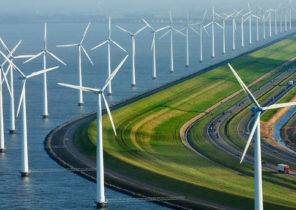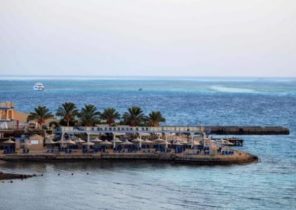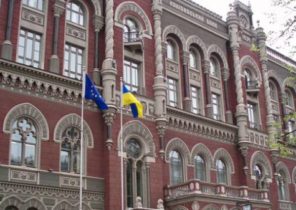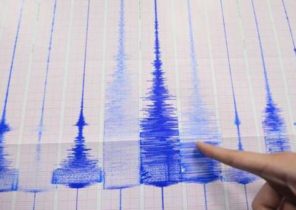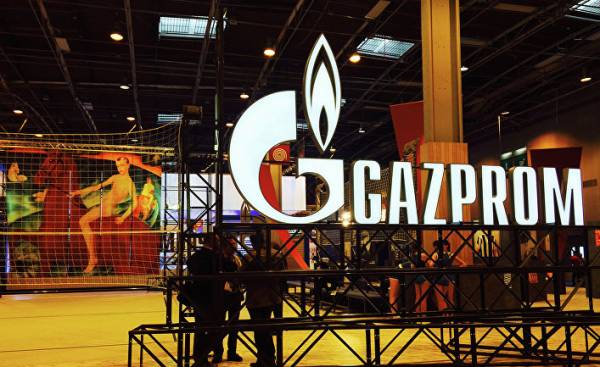
Russian propaganda, which, unfortunately, spreading to the Western media, too, asserts that the fate of the project “Northern stream — 2” is a foregone conclusion, because it supports the head Jean-Claude Juncker and European Commission lawyers say that the controversial pipeline can be deduced from-under actions of the European legislation. This, as shown by documents of the European Commission, not exactly.
Although its legal services really believe that the “Nord stream — 2” is not subject to European law, until recently, they were of the contrary opinion, but they were asked to render a new verdict. In addition, the Directorate-General for energy, which has its own lawyers, argues that the European legislation can be extended to the new pipeline, although this would require agreement between the EU and Russia.
In practice, this means that the harmonization of the legal regime on behalf of the Council of Europe will deal with the European Commission, and the decision will need to approve unanimously. Then the countries that oppose the project, can just veto it. It is not excluded that Russia will refuse to negotiate because the agreement will require changes own rules in the energy sector. In this case, the European Commission will be able to admit the project violates the European legislation. However, the public about these facts doesn’t know anything.
Politics is business
To refute the theses promoted by Gazprom, is labour — consuming task, so conduct a rational discussion on the subject of “North stream — 2” is very difficult. The Russians hired the consortium a special press-Secretary, who deals with issues of the new pipeline. Lately in the press began an active campaign in support of the project. Examples of false arguments used by defenders of the controversial pipeline, summarized fellow Florence school of Regulation (FSR) Dudek Jerzy (Jerzy Dudek).
First, the Russians say that, according to forecasts, the production volume in the EU will decrease, therefore will increase demand for gas. To meet this demand will “Nord stream — 2”.
Second, transit through Ukrainian territory, according to their view, is not only unstable, but also disadvantageous, so that SP-2 will be cost-effective.
Thirdly, it is a business project. Of course, political motives and reasons for the implementation of the project in this context is not discussed. Once SP-2 is just business, not politics, then he should be treated like a normal company, and the European Union should function as a regulator, and not to exert political influence.
Fourth, the “North stream — 2” will meet the requirements of European and international law and the norms of individual countries-EU members.
Fifth, he will have a positive impact on competition and the single European market, Russian enumerates the arguments of an expert.
In a press there was an unofficial edition EurActiv.com that controversial Russian project has the support of Jean-Claude Juncker. His grey Eminence speaker Martin Selmayr (Martin Selmayr) is the unofficial representative of Germany in the European Commission. It is unknown if he was affected by the bill, and if so, whether it was made in the statement of the German Vice-Chancellor Sigmar Gabriel. In October 2015 he assured Putin that “we will not allow the European Commission to intervene” in the project “Northern stream — 2”.
Gazprom calls any attempt to find out the truth “by converting the dispute into a political plane”. In fact, everything is different. It is the activities of supporters of the project, which gained influence in the European Commission, does not make the discussion transparent. In Brussels there are “compromising” on the “Nord stream — 2”, but it’s been a year doesn’t want to make it public. It turns out that it is not fulfilling its mandated role of the defender of the European treatises, and his inaction is used by the builders of the SP-2. On the one hand, they assure that the fate of the pipeline is already a foregone conclusion, and on the other diskreditiert approach, the most prominent representative of which was Poland. They try to isolate Warsaw, calling it the only force acting against the former way of interaction with the Russians in the gas sector.
Meanwhile, a tough assessment of “Nord stream — 2” in to the European Commission letter gave not only Poland, but also other States of the Visegrad group, the Baltic countries, Croatia and Romania. A request to give a legal assessment of the draft sent to the European Commission Denmark and Sweden, which this year has to make a decision about the strip segments of the gas pipeline in their territorial waters. If the European Commission takes a clear position, they can appeal only to ecological criteria, and they SP-2, apparently will fit (as it was with the “Northern flow — 1”).
Defenders of the “Nord stream — 2” say it’s just business. They use the fact that the Western companies with extensive influence on the leadership of their countries, are interested in cheap gas, and the Russians are demonstrating a determination to offer them flexible terms of contracts. This is for Russia a question of life and death. Although it sells a record amount of gas, makes it is relatively small: it’s cheap oil, with quotes which linked prices in long term contracts, as well as in the growth of supply in the gas market (primarily associated with shale revolution in the United States).
Divide and conquer
This is another example from the history of energy strategies of Poland, which shows that business with Gazprom is always politics. As Russia uses its natural resources for foreign policy aims, describes the Director of the Centre for Polish-Russian dialogue and understanding, Wyciszkiewicz Ernest (Ernest Wyciszkiewicz). It shows that the company, born from the Ministry of gas industry, the actual they left.
After the collapse of the Soviet Union, Russian policy abroad was no longer able to rely on the army and a nuclear Arsenal. There was one effective tool of pressure: gas and oil pipelines. With their help, the Russians were able to adhere to the method of “divide and conquer”. They give discounts to allies and countries that have agreed to their demands, but raised prices to those who would not submit. The most striking example was the crisis in supplies to Ukraine in 2006, 2009 and 2014, which usually coincided with the Pro-Western Kiev reversals in policy.
One alternative — submission. In return for delaying repayment of debt and cheap gas to Belarus in 2011 sold its gas pipelines. However, the guarantees of immunity that she was not given. At the end of 2016 began to argue about the price of gas, which is supplied in this state. Russia maintains subsidized rates for those CIS countries that have such policies, which like Moscow.
Otherwise develop the case of the disobedient. When the Russians tried in 2013 to incline to cooperation of Ukraine, at first they threatened to raise the price of gas from $ 400 per thousand cubic meters to 440. And when the President Viktor Yanukovych at the summit of “Eastern partnership” refused to sign the Association agreement with the EU, it became clear that Gazprom is ready to reduce the price to $ 268.5 per thousand cubic meters. Rates for East-Central Europe is only a policy tool, Gazprom, with a market reality they have little in common.
This was confirmed by an antitrust investigation of the European Commission, in which she put forward the claim to the Russian monopolist in the EU countries of our region. She stated that prices were administered unfairly, and Gazprom tried to influence the infrastructure and share markets in the region.
What was it like? The group adhered to price policies which discriminated against the countries of East Central Europe. In spite of the fact that consumers were closer to the vendor they paid more than Germany and other Western States. This was possible because unlike Western Europe, in our part of the continent the infrastructure is not allowed to free access to different suppliers. In the end, Gazprom was able to dictate terms.
Undue influence on the infrastructure, in turn, was the fact that the Russians made in contracts clauses that give them the right to use the pipelines and storage facilities in purpose, in violation of EU antitrust rules. The division of markets is hindering the re-export of Russian gas purchased from one country to another. It inhibited the development of the market, since any change required the consent of Gazprom.
After the beginning of the shale revolution, the volume of supply of gas to the world markets has increased, and access to alternative sources of energy expanded, the Russian company started to use in relation to their clients a more flexible policy. He changed the price formula in contracts with Western European customers and gradually began to abolish the requirement for a ban on re-exports, which blocked free circulation of gas (for example, the contract with the Polish oil and gas company PGNiG in 2012).
Now Gazprom has to go towards its customers, but despite this, he hopes to retain influence in East-Central Europe. This goal is intended to serve as “Nord stream — 2”. Fellow of the Brussels-analytical center BRUEGEL, Zachman Georg (Georg Zachmann) indicates that the project will allow the Russians to dictate prices in the region, as it will separate its market from Western Europe and block the emergence of new directions of supplies of raw materials.
The inaction of the EU
The uncertainty of the position of the European Commission discreditied this Institute as an important player in the formation of solidarity in energy policy. “Nord stream — 2” is only the most vivid example. According to the results of the antitrust investigation, the Commission presented a draft peace agreement with Gazprom. On the one hand, it will not contribute to the advancement of Poland and other countries of East-Central Europe, and on the other is not much prejudice the interests of Gazprom. He will avoid the penalty and only declare their willingness to apply more flexible rules, which he already begun to implement.
The European Commission and Gazprom decided that the concern to avoid penalty of 10% of global revenue, will answer three charges and concessions. It promises in some way to tie pricing formula to prices on European hubs and to ensure free movement of gas through the pipelines, which it controls (the Baltic States and Bulgaria).
Gazprom’s offer is a vague promise that the company will make its policies towards Poland more flexible. However, from the Polish point of view, in a situation where Warsaw does not want to renew the current contract and hopes to sign a new one, it is, as stated in the Financial Times, the head of PGNiG Peter of Lviv (Piotr Woźniak), looks “poor”.
Another step that undermines the authority of the European Commission is a solution allowing Gazprom to increase the volume of gas coming from Russia through Germany’s OPAL gas pipeline — branch of “Nord stream — 1”. If PGNiG and the Polish government has not challenged it in court, it could freeze the market in Eastern-Central Europe for the next 15 years.
Concessions to Gazprom in light of the fact that Russia continues to conduct military operations in Ukraine, set the stage for a split in the European family. To save the European integration and to back the European Commission the role that it should play (the referee standing on guard interests of the European community) should give up the dangerous ties with Gazprom. The Commission could become an instrument of “energy prometheism”, that is, to expand the protective umbrella of rules and laws and allow European countries (primarily Eastern-Central Europe, which was particularly affected by the domination of Gazprom) to break the monopoly of Russian companies and to diversify sources of energy supplies.
We cannot turn a blind eye to the abuses that serve both the interests of Russia, has repeatedly demonstrated hostile intentions towards the EU and, unfortunately, Germany, showing disloyalty to the other countries of the European Union. In Poland and other countries of East-Central Europe all the louder the criticism that may serve to improve the situation. If this happens, take the top supporters of the disintegration of the European Union, and Gazprom will continue to be used to promote Russian policy tool which is the “Nord stream — 2”. That the Kremlin can not afford.
